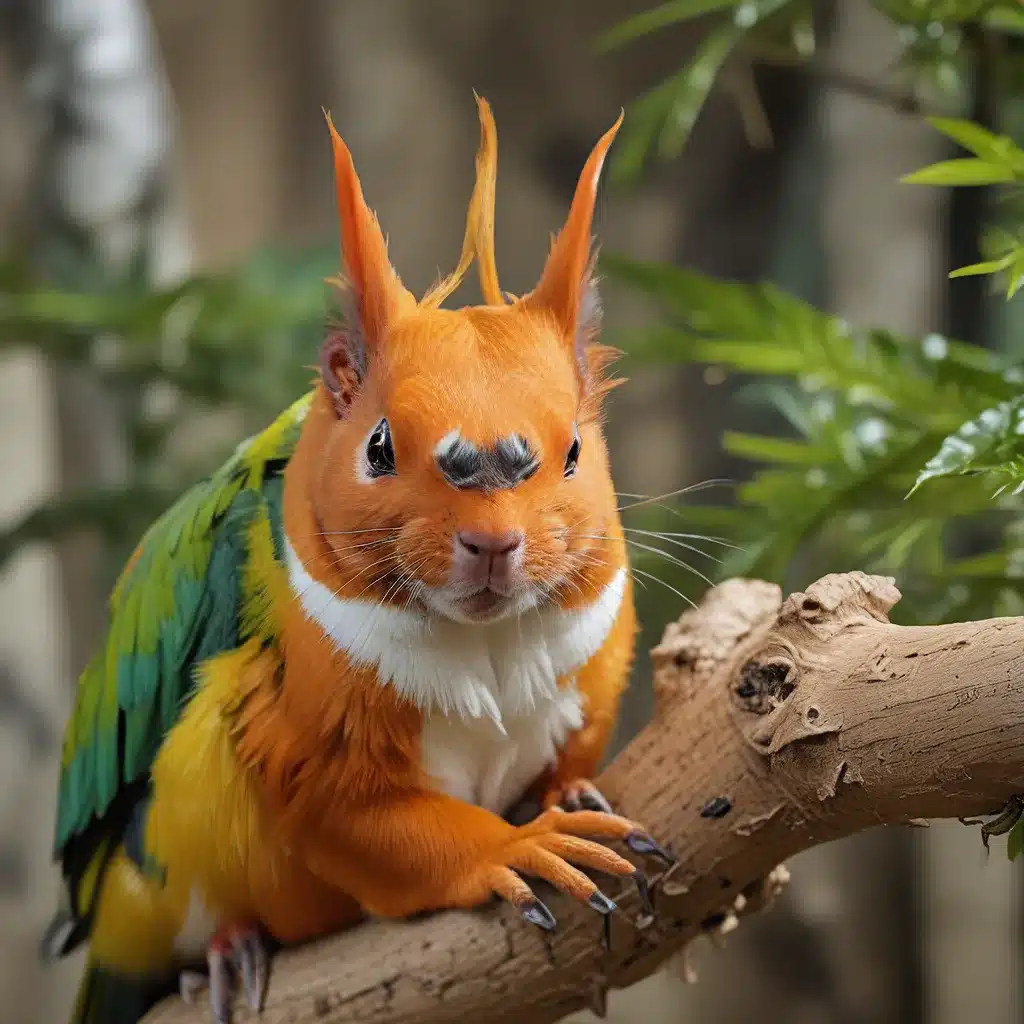
Are your exotic pets living their best lives? 🐹 As an exotic pet enthusiast myself, I can’t help but wonder – are we truly giving our beloved furry (or scaly!) companions the stimulation and enrichment they crave? We may provide top-notch medical care and delectable treats, but the real key to their happiness could lie in recreating the wonders of their natural habitats.
The Boredom Epidemic: Why Enrichment Matters
Let’s be honest, the world of exotic pets isn’t all rainbows and cuddles. Sure, they may be adorable, but the reality is that life in captivity can be a far cry from the thrill of the wild. Imagine being a free-roaming sugar glider, zipping through the treetops, only to find yourself confined to a tiny cage. Or picture a curious gerbil, denied the opportunity to burrow and forage as nature intended. The lack of sensory stimulation and the inability to express natural behaviors can lead to some seriously troubling issues.
According to the experts at Belle Mead Animal Hospital, a lack of environmental enrichment can cause some heartbreaking problems, like over-grooming, self-mutilation, restlessness, and even anorexia or obesity. These behaviors often stem from pure boredom and stress – a captive animal’s way of coping with the monotony of its daily routine.
But fear not, my fellow exotic pet enthusiasts! There’s a solution to this boredom epidemic, and it comes in the form of environmental enrichment.
Enriching the Exotic Pet Experience
Environmental enrichment is all about creating a captive environment that closely mimics an animal’s natural habitat, allowing them to engage in the behaviors that bring them joy and fulfillment. It’s a comprehensive approach that encompasses everything from social interaction to physical and sensory stimulation.
Let’s dive into some of the key elements of an effective enrichment program:
Social Enrichment
For many exotic species, like rabbits, guinea pigs, and even rats, the need for companionship is paramount. As the experts at Belle Mead Animal Hospital explain, these social creatures thrive when housed in groups, as long as they’re carefully monitored and introduced to ensure compatibility. Of course, not all exotic pets are social butterflies – species like Syrian and Chinese hamsters can be prone to aggression, so solo housing may be necessary.
Physical Enrichment
Exotic pets are natural-born acrobats and problem-solvers, and they need an environment that caters to these innate abilities. According to the Belle Mead Animal Hospital, providing deep bedding for burrowing, carpeted ramps for climbing, and novel objects for exploration can do wonders for a pet’s physical and mental well-being.
Nutritional Enrichment
Let’s not forget about the power of food! The experts at Belle Mead Animal Hospital suggest scattering healthy treats throughout an animal’s enclosure, encouraging them to forage and hunt for their meals. This not only satisfies their natural instincts but also boosts their activity levels.
Sensory Enrichment
Exotic pets have a heightened sense of smell, sight, and even touch. By introducing novel scents, textures, and visual elements, we can stimulate their senses and keep them engaged. As the Belle Mead team suggests, rotating the furniture and decor in their habitat can be a simple yet effective way to add a touch of newness and excitement to their daily routines.
Occupational Enrichment
Captive animals can sometimes feel powerless, but occupational enrichment gives them a sense of control over their environment. According to the Belle Mead experts, providing materials for nest-building or chewing can empower our exotic pets to actively shape their surroundings.
Putting Enrichment into Practice
Now that we’ve covered the essentials of environmental enrichment, the real challenge lies in implementing it effectively. As the experts at Wild Enrichment suggest, the key is to maintain a constant state of variety and variation in the enrichment program.
“Even the most fun and inventive enrichment can become predictable and boring for an animal,” they explain. “Variety comes in many forms – feeding at different times, in different ways, getting new enrichment items, moving exhibit furniture around, even changing the color of your uniform can throw off certain animals.”
But it’s not just about switching things up – it’s also crucial to tailor the enrichment to each individual pet. The Wild Enrichment team emphasizes that “There is a great deal of variation in behavior between individuals of the same species. Accounting for this variation is extremely important to have success enriching a variety of animals.”
By continuously evaluating the effectiveness of our enrichment efforts and making adjustments as needed, we can ensure that our exotic pets are living their best lives – and not just existing in captivity.
Enrichment for the Win
Exotic pets deserve so much more than just the basics of food, water, and shelter. They’re complex, intelligent creatures with unique needs and behaviors that crave stimulation and engagement. By embracing the power of environmental enrichment, we can transform their captive experience from a monotonous existence to a vibrant, fulfilling life.
So, let’s put on our thinking caps and get creative! Whether it’s building a multi-level habitat for our sugar gliders, scattering treats in the bedding for our gerbils, or introducing novel scents for our ferrets, the possibilities for enrichment are endless.
At the end of the day, our exotic pets are counting on us to be their advocates, their caretakers, and their source of joy and fulfillment. By making environmental enrichment a priority, we can ensure that they thrive, not just survive, in our care.
Ready to take your exotic pet’s life to new heights? Head on over to GoldenExoticPets.com to discover a world of enrichment resources and expert guidance. Your furry (or scaly!) friends will thank you!

